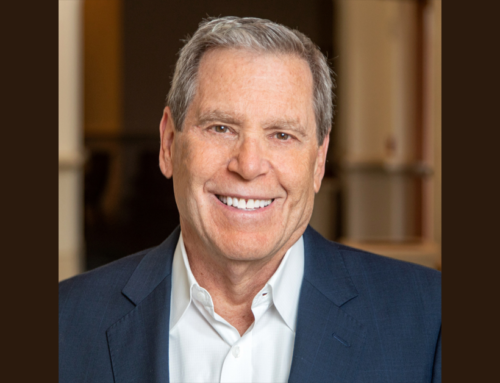
What are the tradeoffs?
Do you call yourself a financial advisor? Financial planner? RIA? Wealth manager? Or, heaven forbid, a broker?
Joe Duran of the $13 billion RIA firm United Capital thinks we have a naming problem in our industry.
During a podcast interview this week with Duran, he told me his firm hired researchers who discovered clients don’t know the difference between a wirehouse broker who calls himself a wealth manager and an insurance agent who uses the same moniker. To them, the term “wealth manager” means, “Anything to do with anything that has money.” In other words, “Everyone is a wealth manager.”
Duran went on to say, “When a term gets bastardized and absorbed by everyone, it then means nothing.”
A Problem For You
This is a problem for you because prospective clients may be lumping you into a bucket in which you don’t belong–and it could cost you business.
His solution to the problem is to redefine the category.
From now on he says, United Capital is a “financial life management company” and its advisors are called “financial life advisors.” Their new category operates at the intersection of where your life and your finances meet.
But is this really a new category?
I mentioned to Duran that financial life planning has been around for decades and asked how his concept of “financial life management” is different.
“It’s very similar. It’s an evolution. It’s creating it in scale.” He added that if you’re already delivering financial life planning/management type services, you should brand yourself that way. Why? Because if you don’t, “Potential new clients just lump you into the same area as other ‘wealth managers’ and they don’t know the difference between you and the guy at XYZ broker dealer who’s selling insurance and commissionable products.”
While claiming no exclusivity to the term financial life management, United Capital owns the finlife.com web address and will aggressively market that term, particularly to millennials. He says the term, “Appeals much more to what people think about when they think about their money. It’s how their money serves them, not how they serve their money.”
Financial Life Management in Practice
How do you put this concept of financial life management into practice? Duran gave me an example.
He said in their research they talked to a guy in his late seventies with $10 million. Let’s call him Jim. They asked Jim to describe his financial life in the form of a story. And then here’s the punch line, “Jim, what’s the moral of your story?” His response was, “The money ain’t enough.”
Turns out ten million dollar Jim was on his third marriage, miserable, and his kids didn’t speak to him.
Jim said, “I always assumed the money was the answer and it’s never been. My biggest regret is I have all this money now and a life that I regret.”
Advice Versus Psychotherapy
Using Jim as an example, here’s the difference between a wealth manager and a financial life advisor according to Duran. The wealth manager would be more focused on optimizing Jim’s financial outcomes while the financial life advisor would be focused on Jim’s life and helping him make choices where his money serves him, not the other way around.
That seems straightforward. But the big trick in life planning is, where do you draw the line between what a financial life advisor can do in terms of the advice they give versus where it steps into more counseling or psychological things, where financial advisors are not trained?
Duran said the line is clear. The advisor’s goal is not to find out why but to find out what. “When it starts getting to why and how do we fix it and why do you feel that way, that’s not our world.”
Further, he says, our job as an advisor is not to tell the client where they should go. It’s to guide the client in choosing the life they want and then helping the client to get there. And if that means, like in Jim’s case, to maximize his money, fine. No judgments are made. If it means to pass up a promotion to spend more time with family, great, goals will be adjusted.
Your Real Value
Here’s the bottom line. Advisors can provide real value by facilitating this discussion about a client’s values and life priorities, but you have to have a process and tools to do that. And you won’t find any competition from Robos here!
By helping your clients clearly understand the choices and tradeoffs available to them, you can then put a plan in place to get your clients on that path. And like a pilot who makes course corrections along the way, you will too when bear markets and personal misfortunes block your client’s path.
If you want to further discuss how you can position yourself as the financial life guide described above, contact me here.





